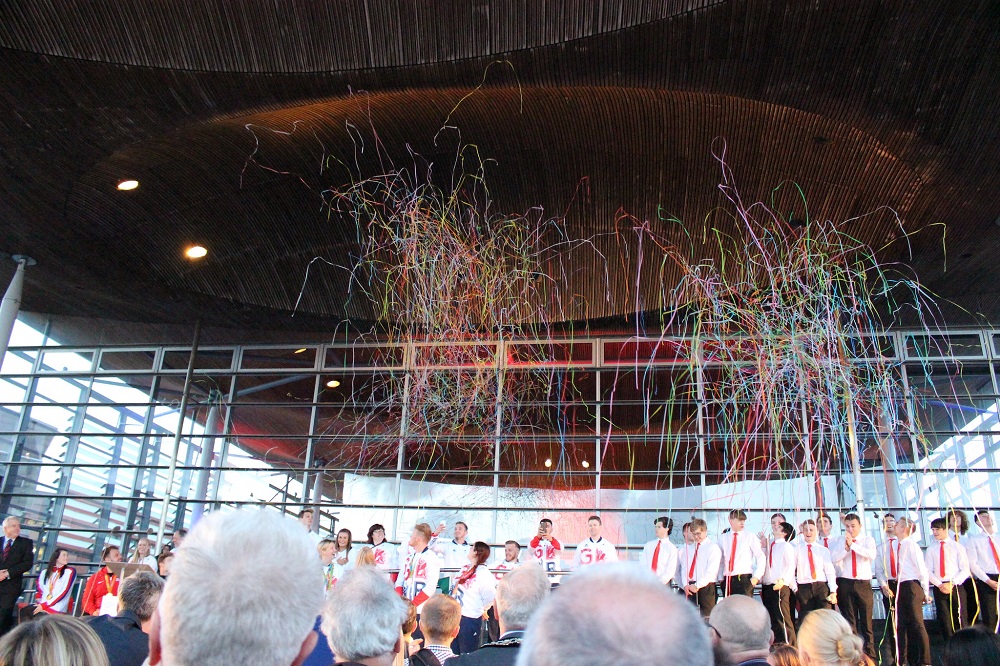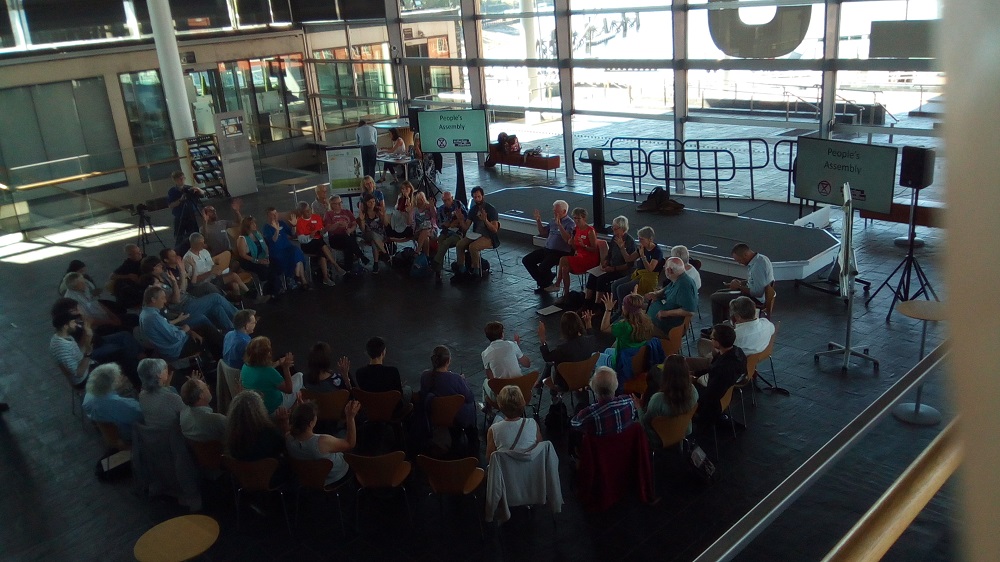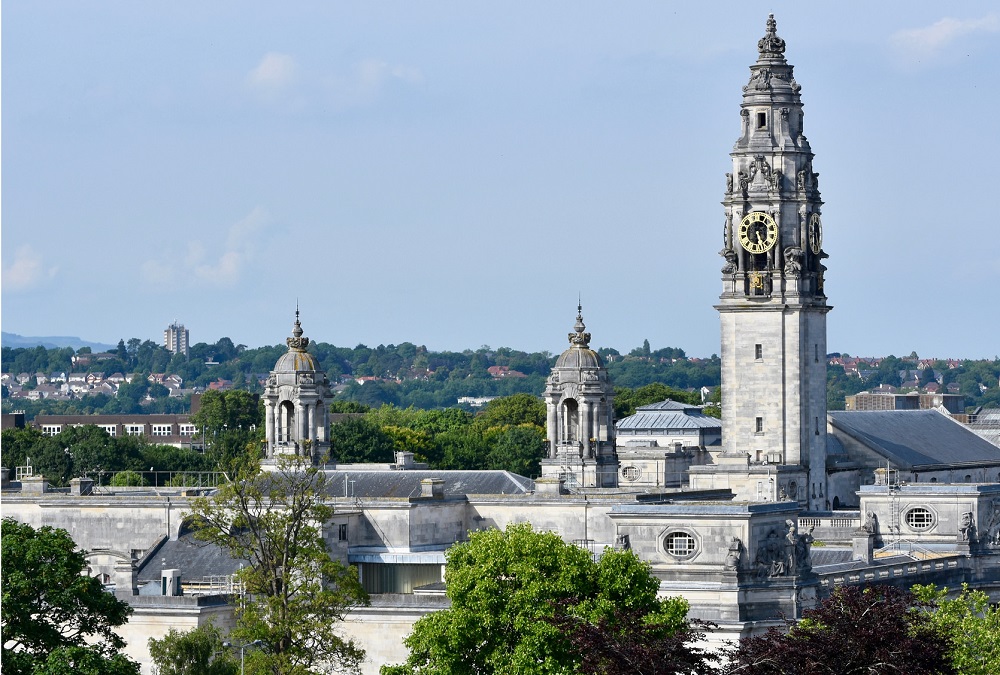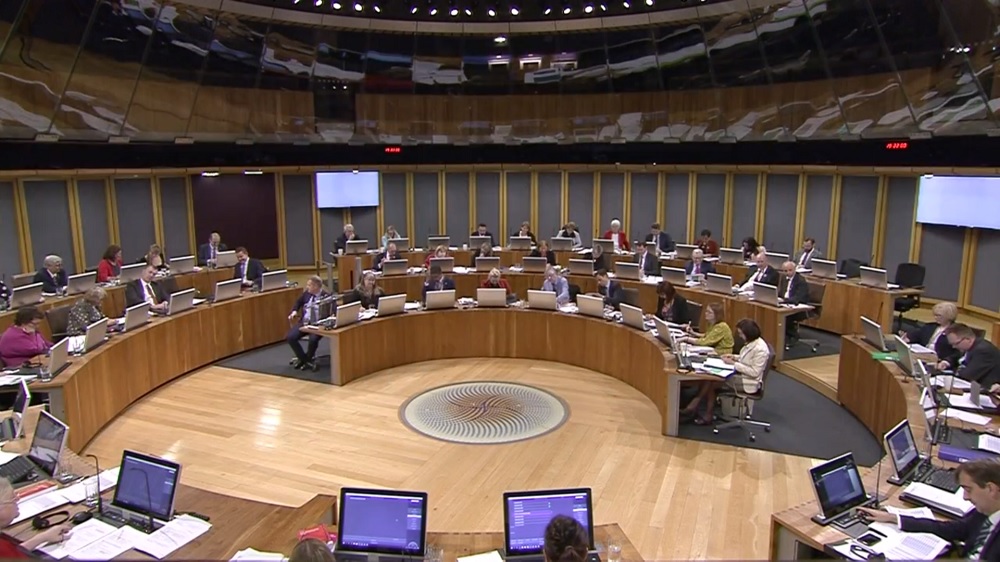10 ways the Welsh parliament and government could bolster support for devolution

Ifan Morgan Jones
Once Brexit is ‘done’ the Welsh Parliament is likely to become a target for those who wish to further centralise political power at Westminster.
There are some signs that the effort has already begun, with a Facebook page (originally run out of an address in Bristol) set up to plug adverts about how the Senedd is a drain on the public purse.
Concerns have also been raised by a recent poll suggesting that 33% would vote ‘yes’ to scrapping the Senedd at a referendum.
It’s important not to over-react to this poll. If 33% want to scrap the Senedd, that means that 67% want to keep it – more than voted for more powers at the 2011 referendum.
And in the same poll the only party that actually wants to abolish the Senedd, the Abolish the Assembly Party, only polls at 2%.
Furthermore, support for the Senedd was highest among the youngest age group, with only 14% of those aged 18-24 saying they would vote to abolish it in a referendum.
However, for supporters of devolution, there is no room for complacency. As Ron Davies said, devolution is a process, not an event. And it can just as easily be pulled back as well as be pushed forwards.
But let us consider the growing profile of the Abolish movement as an opportunity rather than an annoyance – a chance to shake off complacency and consider what really needs to be done not only to strengthen support for devolution but to improve how Wales is governed.
Because in truth even devolution’s biggest supporters would admit that after 20 years some complacency has set in, and that the Welsh Government and Senedd have done surprisingly little so far to embed the institution in the nation’s collective consciousness.
My suggestions below suggestions essentially fall into three categories: i) Ensure people feel they’re being listened to, ii) bring power closer to them, and iii) expand public understanding and interest in the Senedd and the Welsh Government’s role.
- Bring in STV
First of all, ensure that people feel they’re being listened too.
Senedd elections are more proportional than elections at Westminster, but ultimately two thirds of Assembly Members are chosen by First Past the Post. This means that too many voters still feel that their vote has little real impact on the result.
The Senedd should switch to a Single Transferable Vote system where voters rank candidates in order of preference. Single Transferable Vote means that every vote does count, because even if your first choice is knocked out your vote will then transfer to your second and third choice.
This would also give voters unhappy with the main parties the chance to vote for smaller parties or independents without feeling that they’re wasting their vote, but also the option of including a larger party as their second or third choice in case their first doesn’t work out.
Some argue that this system is too confusing. But I think this is nonsense – a similar system is already used at Police Crime Commissioner elections, and is used for General Elections just over the Irish sea.

- Bring in Citizen’s Assemblies
Another idea successfully adopted in Ireland in order to expand engagement are Citizen’s Assemblies. Meeting over the course of a year, 100 citizens are selected randomly as a cross section of society and considered hot topics. In Ireland these have included climate change and legalising abortion, with the recommendations then delivered to the Government.
The Citizen’s Assemblies were commended as a great success that could do a great deal to counter the sense of frustration arising from the perception that the political class aren’t listening to the people. They could almost function as a kind of second chamber to the Senedd, with 100 members of the public randomly chosen for the task each year.

- Empower councils throughout Wales
These next suggestions fall into the second category – bringing power closer to the people.
It’s telling that the Scrap the Welsh Assembly ads don’t read ‘take power away from the Senedd and give it back to Westminster’ as they know that Westminster is even more unpopular than the Senedd.
What the ads say instead is ‘take power away from the Assembly and give it to your local community’. Of course they can promise nothing of the sort, but the Welsh Government could. And it isn’t a bad idea, either.
Local government in Wales is ripe for reform – there are 22 councils and 1,264 councillors in Wales. That’s far too many with costs being duplicated for no good reason.
The Welsh Government has had a number of attempts at solving this problem but so far hasn’t been able to do so, for understandable reasons. Turkeys don’t vote for Christmas and the councils have resisted attempts to scrap or merge them.
What might sweeten the pill would be promising to invest new councils with more much more power. Wales isn’t a one-size-fits all country with a fully integrated economy. The north-east faces different challenges to booming Cardiff which faces different challenges to the rural west.
Powers over the economy, transport and planning need to be devolved another step so that they can be adapted to fit the particular needs of different parts of the nation. Prof. Calvin Jones of Cardiff University makes this case very compellingly here.
Ultimately we may only need four super-councils: The North-East (and Powys?), The Cardiff City Region, Swansea City Region, and Arfor (Gwynedd, Ynys Môn, Ceredigion – and northern Carmarthenshire/Pembrokeshire?).
There would be far fewer councillors but they would be properly compensated for their increased workload, power and local expertise, opening the post up to a far larger cross-section of the population.
The Senedd could then stick at 60 AMs and deal with broader issues that require cross-council cooperation across Wales.

- Connect north and south
As things stand, however, people need to feel that they have access to where power is currently centralised – Cardiff.
The idea of devolution was to bring power closer to the people but the reality of Wales’ creaking transport network means that for many it’s faster to get to London than our own capital city.
There is really no good reason why after 20 years of devolution the roads between the north and south of our nation are still in such a dire state.
No other developed nation on earth as far as I’m aware requires a person to leave it to get quickly from one side to another on public transport.
A motorway or even a dual carriageway are unnecessary – even a relatively straight three-lane road with regular passing places would make a massive difference. A train would be a nice alternative.
I have written more on this subject here.

- Devolve broadcasting
So on to the third category – expand public understanding and interest in the Senedd and the Welsh Government’s role.
With the future of the BBC as it currently stands in jeopardy as the Westminster Government plans to scrap the license fee, the need to devolve broadcasting and set up a public broadcasting service for Wales has perhaps never been greater.
The historian John Davies argued that Wales was an artefact produced by broadcasting, and if BBC Wales and S4C were to disappear or be severely weakened that artefact might also well dissolve along with it.
Even the status quo is far from ideal, however, with little of the BBC’s coverage of current affairs having relevance to Wales. According to a study in 2010 only 3.6% of BBC television, radio and online news was geographically relevant to Wales.
Perhaps unsurprisingly therefore polling has found that people in Wales have little understanding of devolution.

- Support print and online media
For the same reason, the Welsh Government in particular could do much more to ensure that a thriving media exists in Wales. As print sales for newspapers continue to fall a gaping hole has been left for the discussion and scrutiny of Wales’ institutions. The market has failed and if people aren’t to be completely in the dark then public subsidy must step in.
As it stand the Welsh Government only spends around £3.5m of their £18bn budget on print and online publishing in total. Ultimately, if the government wants the people of Wales to be able to understand what they do thay are going to have to spend more than £1 each on everyone in the country.
It may suit the government not to have too much scrutiny of its actions but if that breeds apathy that turns into a preparedness to scrap the institution altogether, they will rue it.

- Teach Welsh history in schools
The new curricilum being rolled out over the next few years is extremely vague about what is required in terms of teaching Welsh history, making few requirements beyond the teaching of some local history.
This seems to be a missed opportunity in terms of developing a common civic identity in Wales by teaching how and why, despite geographical, political,cultural and linguistic differences, an autonomous Welsh nation has developed and endured.
There is perhaps a fear that teaching Welsh history will turn pupils into raging ethnonationalists but teaching the real history of Wales – warts and all – is actually likely to have a much more sobering effect.
It will however help anwser the key question of why. Why does Wales have self-government? But more importantly, why it’s important than what power Wales now has is used well and for the benefit of all.
A nation, like devolution, is a process. The role of teaching the history of Wales shouldn’t be about teaching students what to think about Wales, because every generation needs to decide what Wales is for themselves.
It’s about giving them all the evidence to make that decision. And it’s difficult to make an informed decision about where you’re going next if you don’t know how you ended up there is the first place.

- Ensure every school student is taught the basics of devolution
With 16 year olds now able to vote at Welsh Assembly (and soon at local) elections it’s vitally important than high school children are taught the basics of how government operates in Wales.
Unlike information about how Westminster operates which is largely gained by osmosis many school pupils will have no access to information about devolution.
I still remember a time as recently as 2006 when I had no idea who my Assembly Member was and had little understanding of how Welsh elections worked differently to General Elections and what was devolved and what wasn’t.
By teaching these basics to students at a high school level would provide a foundation of understanding that will carry them through for the rest of their lives.
It needen’t even be a course in and of itself and could be easily included under the ‘Humanities’ subject heading in the new curricilum.

- Keep young people in Wales
On to some miscellanious ideas.
It was noted earlier that those most supportive of devolution are young people. Therefore stopping the current ‘brain drain’ out of Wales would seem a very important step to preserve devolution.
Unfortunately, the Welsh Government’s policy of paying the tuition fees of students that choose to study outside of Wales, and their funding of the Seren Network that helps Welsh students apply for Oxbridge, seems to be designed to encourage this talent and skills drain rather than stem it.
It sems odd that we spend £1.78 billion education school age children in Wales every year and then as soon as they have their A-Levels we encourage them leave and use their skills to enrich other countries. How many will come back?
The SNP’s policy in Scotland of offering free tuition fees not to everyone from the country but for those who wish to study there has the effect of ensuring that talent both stays within and is drawn into the country.
It has boosted both universities there and the economy and has brought in talent from across the globe. Keeping those who support and understand devolution in the country would be a happy side-effect.

- Demonstrate how devolution can improve governance in Wales
Wel, duh. This might seem like a rather obvious point but so far the steady as she goes approach of subsequent Welsh Governments hasn’t produced much in the way of big successes to shout about from the rooftops.
For the first decade or so of devolution perhaps this approach made sense in order to ensure the support of those who lost the 1997 referendum.
But now surely the shackles should come off? There are plenty of big radical, transformational ideas around that could make Wales a better place for all, and I know many Labour AMs support them in theory, but the government doesn’t seem to be in any rush to implement them in practice.
If there was a referendum on the Welsh Parliament again tomorrow, what would they point to as the greatest successes? The plastic bag charge?
They need to get cracking.
Support our Nation today
For the price of a cup of coffee a month you can help us create an independent, not-for-profit, national news service for the people of Wales, by the people of Wales.







I entirely agree with most of this but the notion that you connect north and south primarily through the road system is not only ludicrous but entirely at odds with any notion of sustainable transport. The idea of a decent rail system being just a “nice alternative” merely indicates how satisfied some people in Wales are with being second class citizens- this is at a time when we Welsh tax payers will be helping to fund HS2 which will come no nearer Wales than Crewe sometime in the future! We need a) a decent rail system to connect north and… Read more »
I think most people would support the reopening of many of Wales’ railways closed under the Beeching vandalism of the 1960s. but as Ifan says, what about those isolated communities far from the railheads? I completely agree with you about having an integrated bus system, but buses run on roads, and much of Wales’ road system was built to cope with a horse and cart, not modern motorised transport – and besides, a spinal North – South road could be used to bolster a nationwide integrated bus system of express coaches running at regular intervals which integrated with more local… Read more »
Agree – visit Chile, no railway but fantastic long distance top spec coach service fed by coaches between larger towns and cities, which in turn is fed by micros which service the smaller settlements and towns. All bus stations and taxi hubs located by each other. Larger bus stations big, CLEAN, with internet, sockets, cafes , shower facilities, lockers, free water, shops and kiosks far superior to Cardiff station
I think that what has happened over Cardiff bus station is symptomatic of many problems in Wales; politicians who lack he vision or foresight to the point where the city’s main bus station appears to be an afterthought and that even ordinary members of the public can see will be totally inadequate to deal with the city’s own buses alone, let alone buses form outside, and no provision at all for long distance coaches at all, which are sent to a wind blown location outside of the city centre. It’s totally ludicrous, and has been delayed because it’s obvious that… Read more »
Agree: the old Cardiff bus station, while undeniably scruffy, was superbly convenient for rail passengers needing to make an onward journey by bus when they arrived.
And while the bus station wasn’t big enough to accommodate every bus service, at least the stops for the services which didn’t come into the bus station were immediately outside it on Wood Street, just the other side of that smelly caff whose cooking perpetually pervaded the area with the pong of hot chip fat!
Travellers prefer convenience over aesthetics …
The fact that Cardiff Council and Y Cynulliad were both party to the insane decision to bring the BBC into the centre of Cardiff when it is clearly one of those institutions that could have been moved further out suggests that joined up thinking across a couple of factors is beyond these bodies and seeing a really big picture just never happens. Haphazard, piecemeal thinking.
The focus must have been on making a grand statement to people arriving in Cardiff by train: arrive in beautiful green Wales to a square totally bereft of anything green at all.
Agree, but Chile’s excellent coach services would not be able to operate successfully without the first class motorways uniting northern and southern regions.
Trains, yes. You can read, work, sleep and arrive pretty centrally, no hassle for parking…………..
The focus on transport links is a bit of a distraction. England has great north- south communications and rubbish east- west ones. However no one talks about an east- west divide in England (because there isnt one) but about the north- south one. People are barking up the wrong tree as it is easier than asking the really tough questions on why Wales has the problems it faces.
I suspect you’ve never lived by the Mersey and needed to get yourself to Hull or Grimsby!
Some fair points but I fear it’s too late.
I would consider myself a Welsh nationalist but devolution hasn’t worked at all and even has people like me thinking it’s best to shut down the Senedd. But I’m willing to vote once more next year (not sure if I can, I live abroad). If it’s Labour again, then I would prefer if it was closed down.
Why do you say ‘devolution hasn’t worked at all’? Devolution does work, look at Germany. perhaps you measure devolution by how the NHS performs. Yes, in some areas the Welsh NHS has performed poorly compared to England but in others its performed better. Where the NHS fails then our weak Welsh politicians should have been knocking down the door of Downing Street to get fair funding. Compared to Wales, England’s education system is in bits and mired in scandal – Free Schools, Academies, Grammar schools, etc. Devolution does give us so many opportunities to develop infrastructure, industries, social care, planning,… Read more »
It’s very often said that the problem isn’t the Senedd but the actual government in Cardiff Bay, so change the government. Easier said than done. If the recent polls are anything to go by we could be looking at a 3 way split. Labour will probably loose a few AMs, Plaid Cymru will consolidate and the Conservative party could very well make notable gains. Of course in this scenario we will probably end up with a Labour government agreeing a voting pact with Plaid or a coalition as was the case in 2007. It has already been said by one… Read more »
Why we should support the Senedd, although not perfect, is the only voice of Wales. The weakness is we have ‘British’ made political parties serving ‘British’ i.e. UK imperialist interests. If we want a peaceful resolution to this occupation then Yes Cymru/AUOB will need to work alongside Plaid Cymru, WNP, Gwlad Gwlad and Undod to press home more devolution leading to independence – A Welsh republic. If we lose the Senedd, then we will have to go through the Irish experience and that will NOT be very kind on our peoples and nation. That is not what we want to… Read more »
Why not Plaid go into coalition with the Tories? I know that is a very hard pill to swallow for a lot of Plaid members but we have had uninterrupted Labour rule in Wales for nearly a quarter of a century. Surely this isn’t healthy for democracy. For devolution to be a success than the governing party need to be kept on their toes.
I’m horrified by the suggestion that there are too many councils and councillors and they should be replaced by ‘ four super-councils: The North-East (and Powys?), The Cardiff City Region, Swansea City Region, and Arfor (Gwynedd, Ynys Môn, Ceredigion – and northern Carmarthenshire/Pembrokeshire?)’. This is far too remote for meaningful local democracy. I live in south Gwynedd, which already feels too remote from the Gwynedd council centre of government in Caernarfon 30 miles away – and the only rail link is via Shrewsbury and Chester. The existing county is something like 70 miles north-south and east-west, with communications dependent on… Read more »
The problem is 22 is far too much, and top heavy rather than essential worker heavy. Why not revert to the old 8? The other problem is the calibre of councillor – appalling, conservative, narrow minded, no vision, cronyism, too many old people, not enough life experience, no interest in radical changes for the better; desperate to maintain status quo and large allowances; many unable to string a sentence together let alone form a radical housing policy, too timid, in the pockets of corrupt officials …. and on and on… and that goes for Labour, Plaid, Inde and Tory. They… Read more »
Councillors are representative of the electorate. We choose to vote them in after all. They have few powers, no real independence to raise funds since the 1980s, shrinking budgets, and rising expectations from the voters who cant make the connection between what you put in and what you get out. Consequently it is not a job that is going to attract the very people needed. I have met some great councillors and some total duds. Most are in it for the right reason but a few have gone sour along the way. A few were dodgy from the very start.
Four may be too few, but 22 is definitely too many. Only councillors would defend that number. And another thing, it’s 60 miles to Caernarfon, Louise.
Perhaps the old Gwynedd, Powys, Gwent, Clwyd and Dyfed but with statutory citizens’ assemblies representing the current council areas underneath. No idea what to do about Cardiff and the Valleys; they are far far away but i am sure people there know what would be best for that distant part of Wales.
I agree with the areas covered by ifan but until this is spread to the wider population of Wales not just one’s reading nation cymru then we will not progress any further in having more control over our own destiny..I voted for the Welsh assembly and all though I don’t think it is as vocal as the Scottish government I still think it’s better than being governed solely by the English government at Westminster.. I genuinely believe that until we have more am.s such as Adam price who I think are very passionate about Wales future and unlike other politicians… Read more »
Diolch Ifan Morgan Jones! // Thank you Ifan Morgan Jones!
The fact we subsidise our young people to study outside of Wales and not do everything we can to encourage them to stay and study here is shocking. It is another example of Wales being treated as a region, not a nation in it’s own right, not only by Westminster but also by Wales’ own government!
It is absolutely imperative that the wet blanket Mark Drakeford and his band of toothless, soulless and passionless hangers on are well and truly drop-kicked out of Cardiff Bay as far as possible if we are to reverse this depressing governance of self harm
We should have confidence in those young people who need to study at the university that is best suited to realizing their potential. Offering a fixed menu would not help in the short or the long term. Universities in Wales should be held accountable for why Welsh students are not choosing them if that is the case, and if it isn’t then what is the problem. Students usually don’t return ‘home’ because the opportunities aren’t there.
There are some truly engaging and promising ideas here: + the introduction of STV which would at a stroke eradicate the notion of ‘the wasted vote’ and diminish the fatalistic and disempowering sense that an individual vote is rarely able to contribute to political change; + the idea of citizens’ assemblies which would offer to ordinary electors a potential way of directly influencing national decision-making; + the resurrection of what once was termed ‘civics’ as part of the school curriculum, so that an understanding of how our political system works becomes part of an all-round education; + the devolution of… Read more »
Perhaps all 15/16 year olds should attend a civics course delivered in two stages; firstly by their local council and then by the senedd. Attendance would be mandatory for your right to vote to be confirmed. The course would be free and could happen at school outside normal school day.
I like the idea; but, recalling memories of my own school days, I think your suggestion that it ‘could happen at school outside (the) normal school day’ might be a bit of a hard sell to teenagers!
I agree with Citizens Assemblies by random selection, but only then if participation is mandatory. Otherwisewise we’ll find out they’ll be stuffed with the right on and mouthy
I think at the outset of the Assembly there was the opportunity to have separation of powers between the Govt and the parliament. So the FM could have chosen a cabinet not made up of AMs, or even career politicians. He could choose academics, business people, technocrats. Like happens in the US and France I think. That bus has prob driven off by now, but appeals to me
The people making the decisions need to be accountable. There is no evidence the US and French systems are more effective.
Another curate’s egg of a post that fails to address the real problem. Abolishing the Assembly has gained support not because we lack a motorway between north and south, or because our kids aren’t taught Welsh history, we’ve survived these shortcomings for centuries. The real reason is because devolution has failed to deliver outside of “booming Cardiff”. In addition, Welsh Labour and Plaid Cymru have set up and supported a third sector that does nothing more than capitalise on Wales’ deprivation to provide thousands of unnecessary jobs for ‘progressive’ cronies. Then there is the perception that Cardiff Bay has become… Read more »
One solution is that Wales can become a federal republic where regional assemblies take on their own powers for their own needs and send elected delegates to a 2nd house at Cardiff bay as a policy & law ratification chamber.
Allowing the Senedd to take on national issues such as the economy, justice, immigration, foreign policy, national broadcasting.
Some good points here.As you say act using existing devolved powers while room exists to do so.Defensiveness didn’t do the Corbyn project much project much good against v.similar forces.
Citizens Assemblies: citizens assembling feels like a good thing. Or did you mean simply a Siop Siarad? But you have suggested making it a Second Chamber. So that involves changing our system of government. The way the Welsh should change their system of government is to take a step back. The standard issue Written Constitution for dozens of States and Countries round the world, outside the Commonwealth, is this – the legislature is Bi-cameral, 2 houses. – they are both elected – they are elected differently (different length of term or whatever) to get “check and balance” Which sounds very… Read more »
Good article. The Finns vote this way; you go to the desk with your ID card, or driving licence, then you are checked and given a voting card like a birthday card, but with a circle inside. You go into the booth, where a list of candidates poster sized, shows say 1 to 100 with names against the numbers, like social democrats might be 1 to 10, then liberals 10 to 20 etc. You write the number of your preferred candidate in the circle, take it to the next desk where it is stamped on the outside, then pop it… Read more »
Mae hewlydd gorllewin Cymru yn chwalu o dan y drafnidiaeth drom, e.e.. yr heol o Aberteifi i Gaerfyrddin ac o Lambed i Aberystwyth. Mae angen rheilffyrdd i symud y lorïau trwm off yr heolydd, a gwella’r ffyrdd a thrafnidiaeth gyhoeddus i leihau’r angen am gymaint o geir.
And now, folks, for number 11. (0r, getting Indy 90% approval in a week!)
A dutch scientist/engineer is proposing to;
1. dam John o Groats to below Stromsund
2. dam Lands End to Brittany.
Where will the climate change water go?
I think that this is an excellent article and one that chimes completely with my thoughts on how to improve Wales and its citizens. The importance of media and the engagement of people in politics is essential for Wales in the future as the present day landscape is of no benefit at all. It is both a sad and frightening fact that most people in the South Wales Valleys read either the Daily Mail or the Sun and with the highest concentration of Sky subscribers are less likely to engage and understand events in their locality or elsewhere in Wales.… Read more »
Nations are forged by a sense of shared endeavour. For the Senedd to survive it needs to be seen as the champion of national renewal. Never in human history have people been able to express their thoughts to so many, never have so many felt so ignored. The answer is not more talking shops, but many more citizens with their hands on the levers of power; worker and citizen stakeholder involvement in the public sector; direct elections replacing public appointments; scrutiny by boards elected or selected jury style with powers to subpoena. A revolution in civic society!
How about boosting the profile of the opposition leader in the Assembly? Does anyone in Wales outside of politics know who Paul Davies is? This is someone who could potentially be an alternative First Minister to Drakeford.
Whenever the Welsh Labour Government comes under fire/criticism the media always report the criticisms from Conservative MPs in London and not criticisms from Conservative AMs.